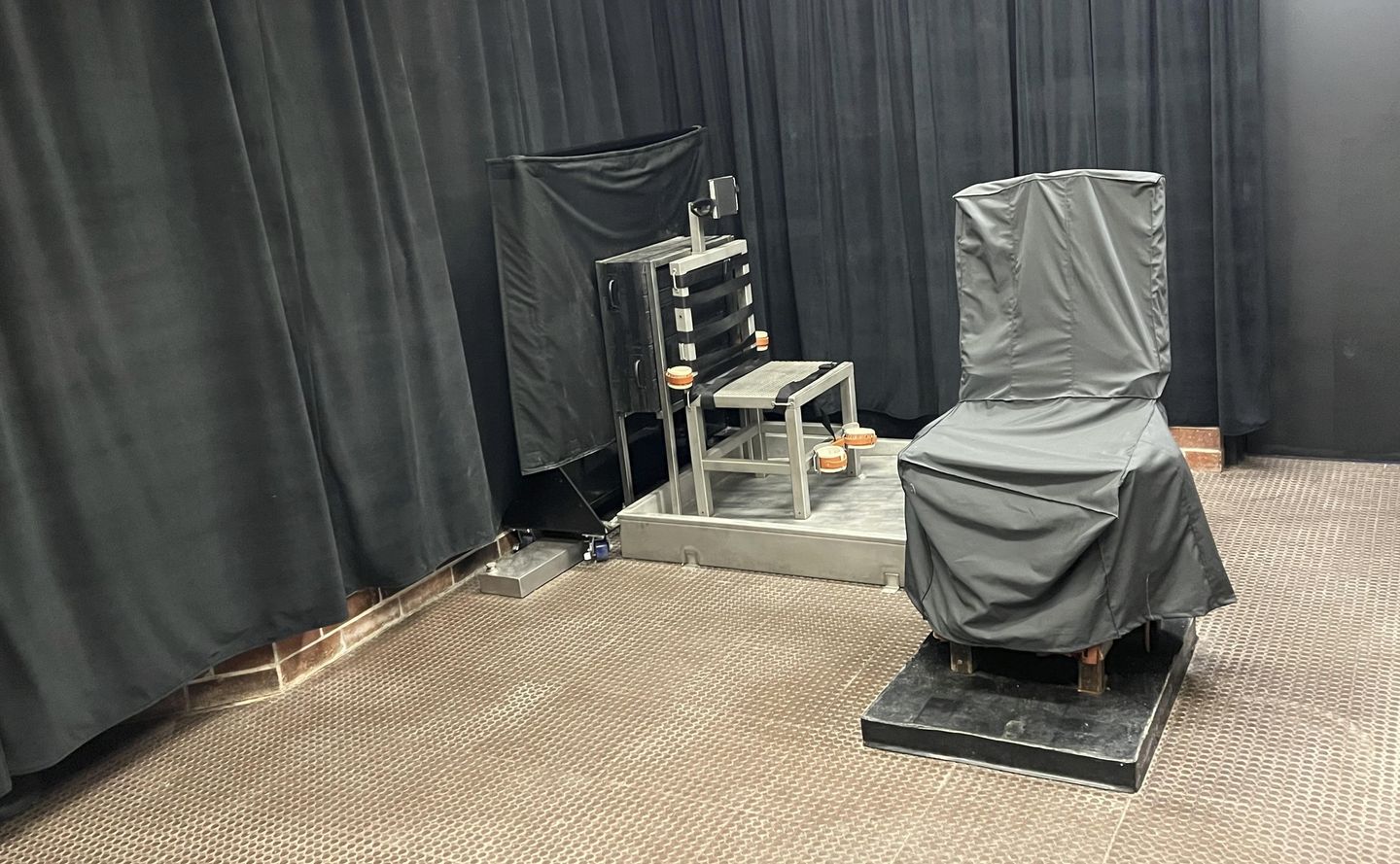
Twenty-five men have died by court-ordered execution so far this year in the U.S., and six other people are scheduled to be put to death in five states during the remainder of 2025.
Alabama and Missouri recently set execution dates for August and October, respectively. Florida, Tennessee and Texas have also scheduled executions for later this year.
The most recent executions took place in Mississippi and Florida. Executions also have been carried out this year in Alabama, Arizona, Indiana, Louisiana, Oklahoma, South Carolina, Tennessee and Texas.
Twenty-five executions were also carried out last year and in 2018. Those are the highest totals since there were 28 in 2015.
Here’s a look at recent executions and those scheduled for the rest of the year, by state:
Richard Gerald Jordan was executed June 25 at the Mississippi State Penitentiary in Parchman.
Jordan, 79, was sentenced to death in January 1976 for kidnapping and killing Edwina Marter in Harrison County. After he kidnapped Marter, Jordan took her to a forest and fatally shot her before calling her husband, claiming she was safe and demanding $25,000.
Thomas Lee Gudinas, 51, died by injection on June 24. Gudinas was convicted in 1995 and sentenced to death for the rape and killing of Michelle McGrath near a central Florida bar.
Michael B. Bell, 54, is scheduled to be executed on July 15 for fatally shooting a man and woman outside a Jacksonville bar as part of an attempted revenge killing. Bell was convicted in 1995 and sentenced to death for the murders of Jimmy West and Tamecka Smith.
Byron Black, 69, is scheduled to die by lethal injection on Aug. 5. Black was convicted in 1989 of three counts of first-degree murder for the shooting deaths of his girlfriend, Angela Clay, and her two daughters in Nashville.
Harold Nichols, 64, is also scheduled to die by lethal injection on Dec. 11. Nichols was convicted of rape and first-degree felony murder in the 1988 death of Karen Pulley in Hamilton County.
David Lee Roberts, 59, is scheduled to be put to death with nitrogen gas on Aug. 21.
Roberts was convicted of killing Annetra Jones in 1992 while he was a houseguest at Jones’ boyfriend’s home in Marion County. Prosecutors said Roberts packed his belongings, stole money and shot Jones three times in the head with a .22 caliber rifle while she slept on the couch. Roberts poured gasoline or another flammable liquid on Jones’ body and the floor, setting fire to the home to hide evidence.
The Alabama Supreme Court authorized Roberts’ execution at the request of the state attorney general’s office, which argued he has exhausted his appeals.
Roberts’ attorney had asked for a delay, arguing that Roberts, who has a paranoid schizophrenia diagnosis, is “probably incompetent to be executed” and should receive an evaluation.
If carried out, it would be the nation’s seventh execution by nitrogen gas, a method Alabama began using last year as an alternative to lethal injection. The method involves supplying nitrogen gas via a respirator mask to an inmate, causing the person to lose consciousness and die from a lack of oxygen.
Blaine Milam, 35, is scheduled to die by lethal injection on Sept. 25. Milam was convicted of killing his girlfriend’s 13-month-old daughter during what the couple had said was part of an “exorcism” in Rusk County in East Texas in December 2008.
Milam’s girlfriend, Jesseca Carson, was also convicted of capital murder and sentenced to life in prison without parole.
Lance C. Shockley is scheduled to be executed on Oct. 14, according to the nonprofit Death Penalty Information Center.
Shockley was found guilty of first-degree murder in the death of Missouri State Highway Patrol Sgt. Dewayne Graham outside his home in Carter County in March 2005.
Testimony at the trial indicated Graham was killed because he was investigating Shockley for involuntary manslaughter and leaving the scene of an accident.
Earlier this year, Republican Gov. Mike DeWine postponed five executions scheduled for 2025. All five have been delayed until 2028.
In postponing the executions, DeWine has cited the state’s inability to secure the drugs used in lethal injections due to pharmaceutical suppliers’ unwillingness.
DeWine has said that he does not anticipate any further executions will happen during his term, which runs through 2026.


![Man Arrested After Screaming at Senators During Big Beautiful Bill Debate [WATCH]](https://www.right2024.com/wp-content/uploads/2025/06/Man-Arrested-After-Screaming-at-Senators-During-Big-Beautiful-Bill-350x250.jpg)














